
Dambulla: Sri Lanka's Timeless Heritage Hub
Dambulla, a town located in the heart of Sri Lanka, is a treasure trove of ancient history and culture. It is home to the famous Dambulla Cave Temple, also known as the Golden Temple of Dambulla. This UNESCO World Heritage Site features a series of caves adorned with stunning Buddhist murals and statues that date back to the first century BC. The tranquil surroundings and the spiritual ambiance of the temple complex make it a must-visit destination for those seeking a deeper understanding of Sri Lanka's rich heritage. Beyond the cave temple, Dambulla offers more to explore. The town is located near the iconic Sigiriya Rock Fortress, another UNESCO World Heritage Site. Many tourists use Dambulla as a base to visit this ancient rock citadel, which offers breathtaking views and fascinating archaeological remains. The bustling Dambulla market is also worth a visit, offering a glimpse into the daily lives of locals and an opportunity to sample fresh produce and local delicacies. Dambulla is not just about history; it is also a gateway to the natural beauty of Sri Lanka. The nearby Minneriya National Park is famous for its large gatherings of wild elephants, providing an excellent safari experience. For those interested in bird watching, the Kandalama Tank is a serene spot where numerous bird species can be observed. Whether you are a history buff, nature lover, or simply someone looking to experience the authentic Sri Lankan lifestyle, Dambulla has something to offer.
Local tips in Dambulla
- Visit the Dambulla Cave Temple early in the morning to avoid crowds and the heat.
- Wear comfortable shoes as there is a bit of walking and climbing involved at the cave temple and Sigiriya Rock Fortress.
- Carry a bottle of water and some snacks, especially if you plan to visit multiple sites in one day.
- Respect local customs by dressing modestly when visiting religious sites.
- Hire a local guide for the cave temple and Sigiriya to gain deeper insights into the history and significance of these sites.
- Plan a safari at Minneriya National Park during the dry season (July to October) for the best chance to see large herds of elephants.
Dambulla: Sri Lanka's Timeless Heritage Hub
Dambulla, a town located in the heart of Sri Lanka, is a treasure trove of ancient history and culture. It is home to the famous Dambulla Cave Temple, also known as the Golden Temple of Dambulla. This UNESCO World Heritage Site features a series of caves adorned with stunning Buddhist murals and statues that date back to the first century BC. The tranquil surroundings and the spiritual ambiance of the temple complex make it a must-visit destination for those seeking a deeper understanding of Sri Lanka's rich heritage. Beyond the cave temple, Dambulla offers more to explore. The town is located near the iconic Sigiriya Rock Fortress, another UNESCO World Heritage Site. Many tourists use Dambulla as a base to visit this ancient rock citadel, which offers breathtaking views and fascinating archaeological remains. The bustling Dambulla market is also worth a visit, offering a glimpse into the daily lives of locals and an opportunity to sample fresh produce and local delicacies. Dambulla is not just about history; it is also a gateway to the natural beauty of Sri Lanka. The nearby Minneriya National Park is famous for its large gatherings of wild elephants, providing an excellent safari experience. For those interested in bird watching, the Kandalama Tank is a serene spot where numerous bird species can be observed. Whether you are a history buff, nature lover, or simply someone looking to experience the authentic Sri Lankan lifestyle, Dambulla has something to offer.
When is the best time to go to Dambulla?
Iconic landmarks you can’t miss
Sigiriya
Discover the breathtaking Sigiriya Fortress, a UNESCO World Heritage Site, where history, nature, and stunning views converge in Sri Lanka.
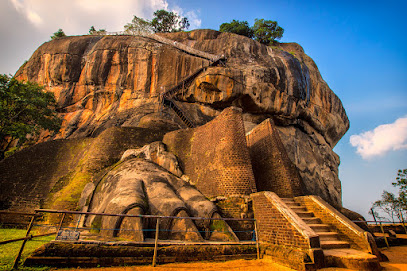
Dambulla Royal Cave Temple and Golden Temple
Discover the Dambulla Royal Cave Temple, a UNESCO World Heritage site featuring stunning Buddhist art and tranquil cave chambers in Sri Lanka.
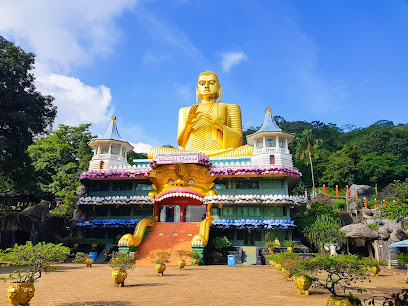
Pidurangala Rock
Explore the majestic Pidurangala Rock, a historical landmark near Sigiriya, offering stunning views and a rich tapestry of Sri Lankan culture.
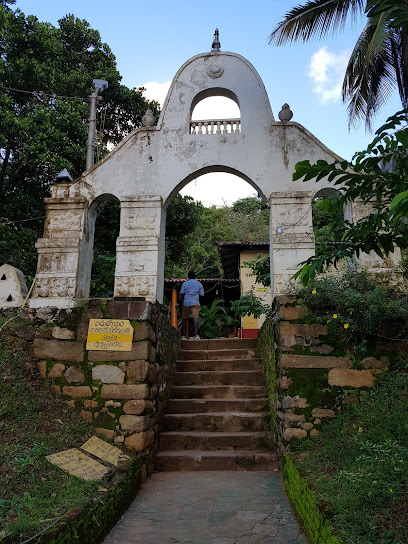
Uththararamaya (Gal Vihara)
Explore the serene beauty and rich history of Uththararamaya (Gal Vihara), a breathtaking Buddhist temple in Nissankamallapura, Sri Lanka.
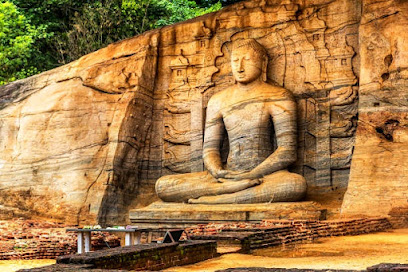
Jetwing Lake
Experience the ultimate luxury at Jetwing Lake, a serene hotel retreat in Dambulla, surrounded by breathtaking landscapes and rich culture.
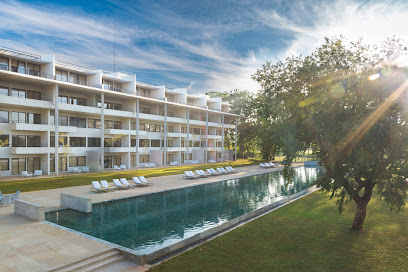
Minneriya National Park
Explore the breathtaking Minneriya National Park, home to majestic elephants and diverse wildlife amidst stunning landscapes in Sri Lanka.
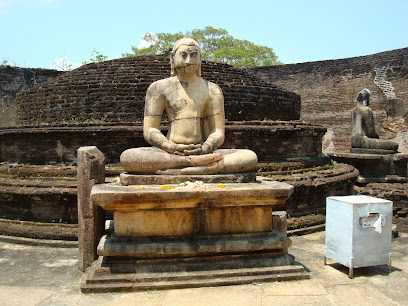
Jathika Namal Uyana
Discover the breathtaking beauty and rich biodiversity of Jathika Namal Uyana, Sri Lanka's largest national reserve, a must-visit for nature enthusiasts.
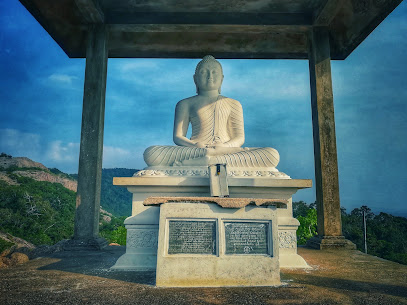
Polonnaruwa Ancient City
Explore the ancient ruins of Polonnaruwa, a UNESCO World Heritage site showcasing the grandeur of Sri Lanka's historical capital.
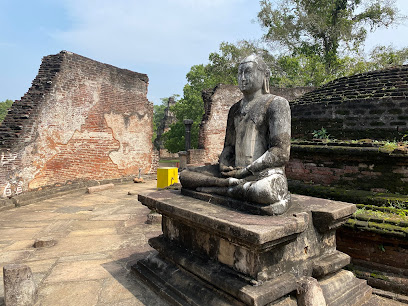
Oak Ray Elephant Lake
Discover the beauty of nature and luxury at Oak Ray Elephant Lake in Habarana, Sri Lanka, your perfect getaway for relaxation and adventure.
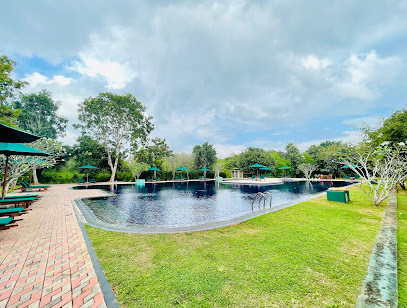
Pelwehera Village Resort
Discover the serene Pelwehera Village Resort in Dambulla, a perfect blend of comfort and cultural experiences amidst stunning natural beauty.

Ibbankatuwa Megalithic Tombs
Explore the ancient Ibbankatuwa Megalithic Tombs in Dambulla, a fascinating historical site showcasing Sri Lanka's rich archaeological heritage.
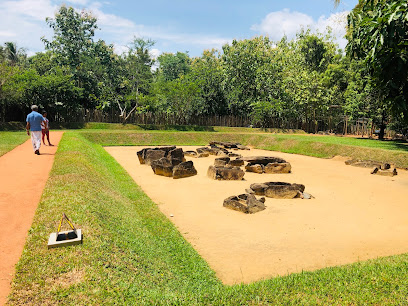
Ibbankatuwa Megalithic Burial Site
Discover Sri Lanka's ancient burial traditions at Ibbankatuwa Megalithic Burial Site, a must-visit historical site in Dambulla.

Popham's Arboretum
Discover the natural beauty and ecological diversity of Popham's Arboretum, a serene park in Dambulla, perfect for nature lovers and tourists alike.
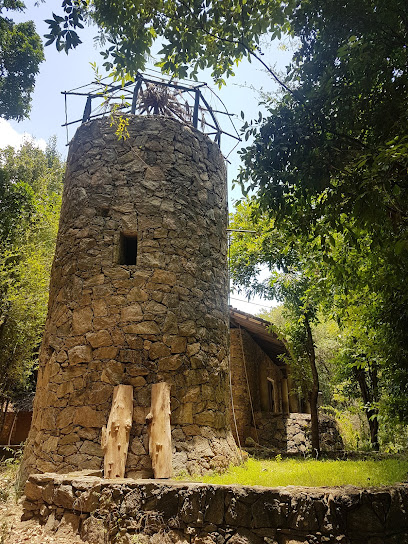
Rangiri Dambulla Resort
Experience tranquility and natural beauty at Rangiri Dambulla Resort, your serene escape in the heart of Sri Lanka's lush landscapes.
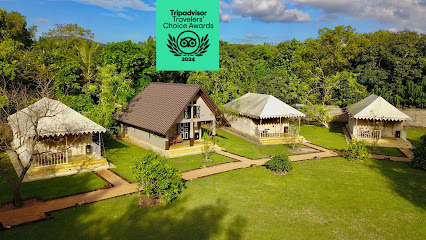
Dambulla Rock Arch
Experience the authentic charm and comfort of Dambulla Rock Arch, a cozy guest house that offers a perfect base for your Sri Lankan adventure.
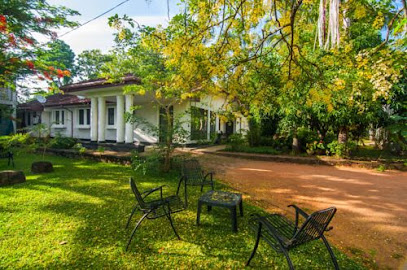
Unmissable attractions to see
Dambulla Clock Tower දඹුල්ල ඔරලෝසු කණුව
Discover the Dambulla Clock Tower, a majestic landmark in Sri Lanka, surrounded by vibrant markets and rich cultural experiences.
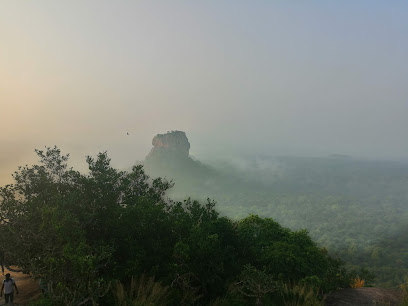
Heritage Spice & Herbs Garden
Explore the Aroma of Sri Lanka at Heritage Spice & Herbs Garden - A Must-Visit for Spice Enthusiasts and Nature Lovers Alike.
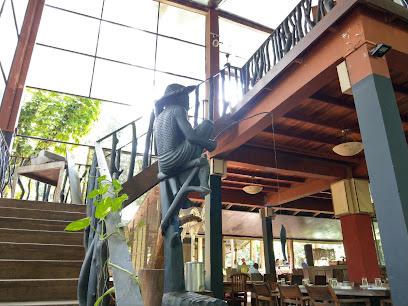
Sathutu Dupatha (Pleasure Island) | සතුටු දූපත
Explore Pleasure Island in Dambulla, a tropical paradise filled with thrilling rides, lush gardens, and unforgettable experiences for the whole family.
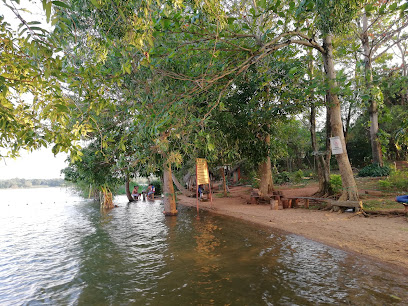
Kandalama Reservoir Bridge
Explore the serene Kandalama Reservoir Bridge in Dambulla, a picturesque destination offering stunning views and a tranquil natural escape.
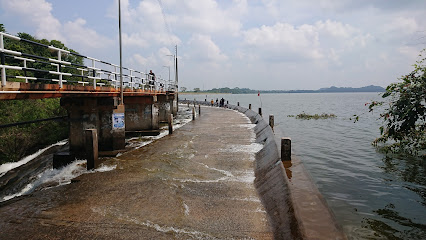
Lake View Restaurant
Experience the flavors of Sri Lanka at Lake View Restaurant, where delicious cuisine meets stunning lakeside views in Dambulla.
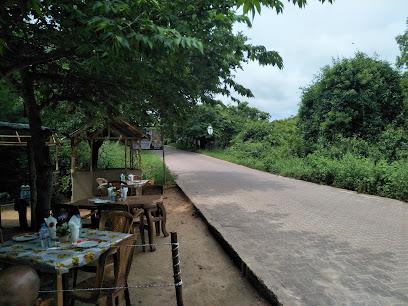
Pidurangala and Sigirya Rock View Point
Explore the stunning Pidurangala Rock View Point for breathtaking vistas of Sigiriya and the lush Sri Lankan landscape, a must-see for every traveler.
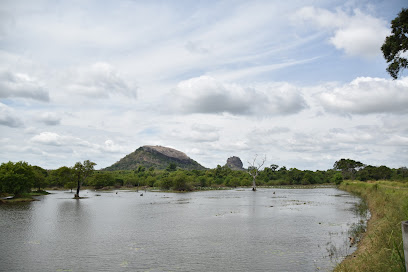
Temple Lake View Point
Discover the serene beauty of Temple Lake View Point in Dambulla, a stunning tourist attraction perfect for nature lovers and spiritual seekers alike.
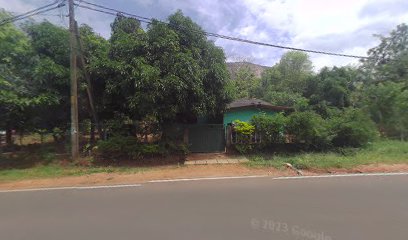
Essential places to dine
Sakura Village House Restaurant Dambulla
Discover authentic Sri Lankan cuisine at Sakura Village House Restaurant Dambulla - where every meal tells a story.
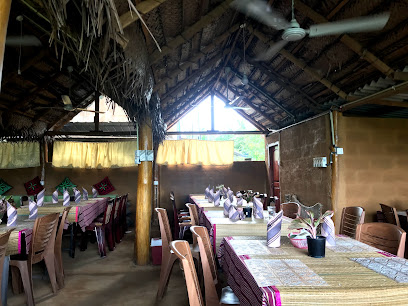
Athula Restaurant
Discover authentic Sri Lankan flavors at Athula Restaurant in Dambulla - where delicious meals meet warm hospitality.
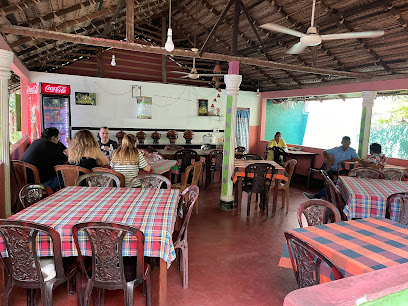
Delight Restaurant Dambulla
Experience authentic Sri Lankan cuisine at Delight Restaurant Dambulla – where every dish tells a story.
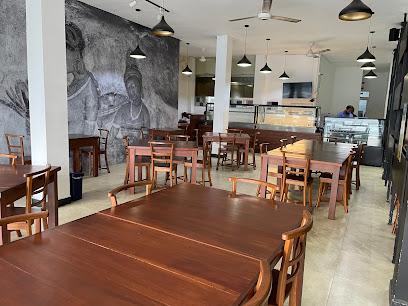
Tropical Village Hotel & Restaurant
Experience a culinary journey at Tropical Village Hotel & Restaurant in Dambulla – where local flavors meet Western delights in a cozy atmosphere.
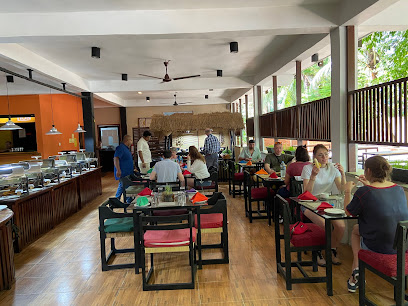
Araliya Army Welfare Restaurant
Discover authentic Sri Lankan flavors at Araliya Army Welfare Restaurant - where tradition meets taste on your journey through Dambulla.
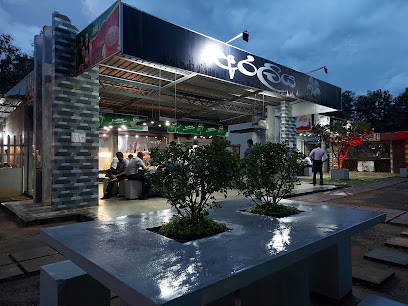
Gami gedara - ගැමි ගෙදර
Experience the essence of Sri Lanka at Gami Gedara - your family-friendly destination for authentic local cuisine in Dambulla.
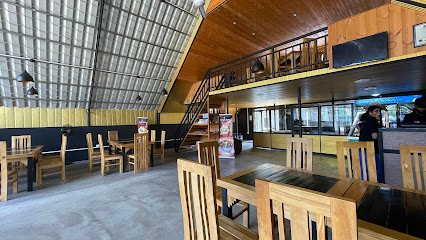
Sundaras Restaurant & Pool BAR
Discover authentic Sri Lankan cuisine and refreshing cocktails at Sundaras Restaurant & Pool Bar in Dambulla's vibrant atmosphere.
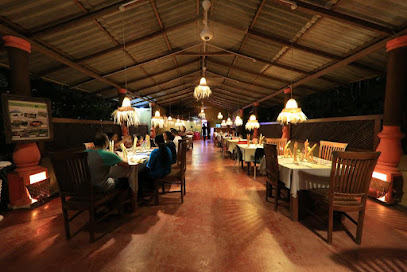
Rithu Restaurant
Experience authentic Sri Lankan flavors at Rithu Restaurant in Dambulla - where every meal tells a story.
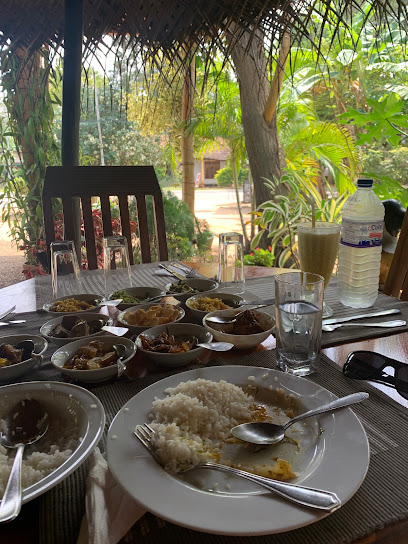
Manj Restaurant & Bar
Experience the best of Sri Lankan flavors at Manj Restaurant & Bar - where culinary traditions meet modern dining in Dambulla.
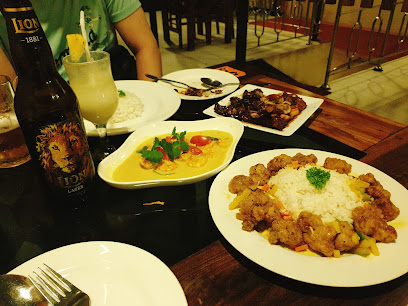
Sambole Restaurant
Discover authentic Sri Lankan flavors at Sambole Restaurant in Dambulla's vibrant buffet setting.
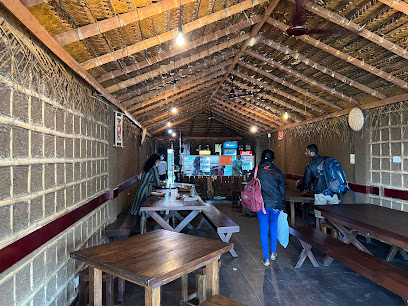
The Kitchen Restaurant
Experience authentic Sri Lankan flavors at The Kitchen Restaurant in Dambulla – a culinary treasure for food lovers.
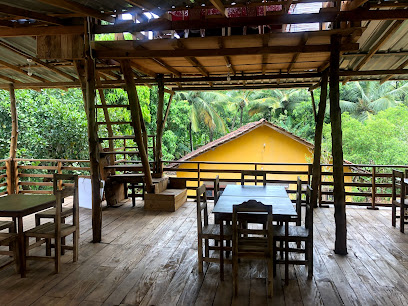
Danushi Restaurant - Dambulla
Experience authentic Sri Lankan cuisine at Danushi Restaurant in Dambulla – where flavor meets tradition.
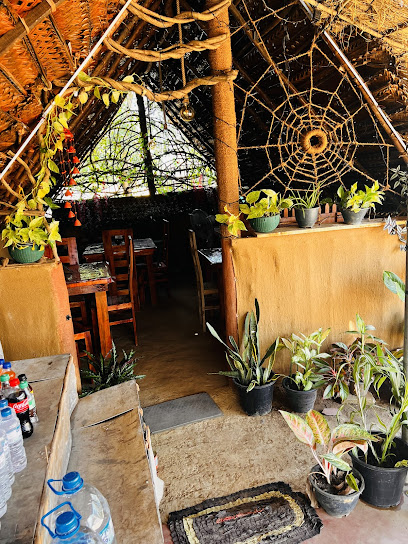
Heritage Dambulla By Ceylon Hotels Corporation
Discover authentic Sri Lankan flavors at Heritage Dambulla by Ceylon Hotels Corporation – your go-to spot for breakfast, lunch, and snacks.
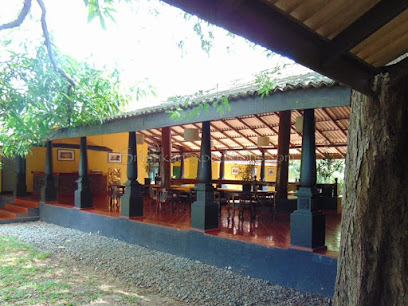
UpRising Restaurant
Discover UpRising Restaurant in Dambulla: A delightful blend of local flavors and international cuisine awaits every traveler.
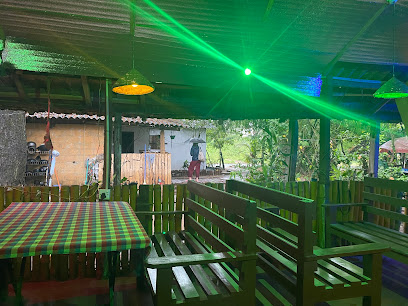
Araliya Bistro Cafe & Restaurant
Experience the vibrant tastes of Sri Lanka at Araliya Bistro Cafe & Restaurant in Dambulla - where culinary traditions meet contemporary flair.
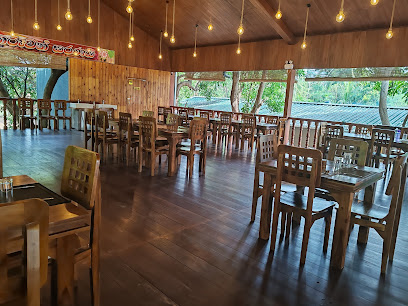
Markets, malls and hidden boutiques
තිසේරා මුරුක්කු Factory
Explore the rich spices of Sri Lanka at Thissera Murukku Factory in Dambulla, where flavors come alive in an aromatic adventure.

Priya
Explore the authentic tastes of Sri Lanka at Priya Grocery Store in Dambulla, a must-visit for culinary enthusiasts and culture seekers.

SUPER BRANDS OF SRI LANKA
Experience the essence of Sri Lanka at Super Brands, a vibrant shopping destination in Dubai showcasing the island's unique culture and products.

Higurakgala
Explore Higurakgala, a treasure trove of unique Sri Lankan gifts and crafts, perfectly located in the vibrant town of Dambulla.

Outlook fashion store
Discover the vibrant fashion scene at Outlook in Dambulla, where local styles meet modern trends in a delightful shopping experience.

Sabry
Experience the vibrant culture of Dambulla at Sabry, a charming store offering unique Sri Lankan handicrafts and souvenirs.

Gift card vendors
Explore Dambulla's charming gift card vendors for unique souvenirs and handcrafted treasures that embody the heart of Sri Lankan craftsmanship.

Vinudi stors
Explore the local treasures at Vinudi Stors in Dambulla, where vibrant culture meets unique shopping experiences.

Mathugama
Explore Mathugama in Dambulla for an authentic Sri Lankan shopping experience filled with local culture and unique treasures.

Meevitigammna
Discover authentic Sri Lankan crafts and unique souvenirs at Meevitigammna in Dambulla, a must-visit store for every traveler.

Gampaha
Discover the vibrant culture and scenic beauty of Gampaha, a charming town in Sri Lanka, perfect for exploring local shops and attractions.

Mal Kade Palagolla
Discover the vibrant crafts and authentic souvenirs of Sri Lanka at Mal Kade Palagolla in Dambulla, a must-visit store for every traveler.

Amal Dinusha
Experience the essence of Sri Lanka at Amal Dinusha, a charming store in Dambulla offering unique local products and a taste of vibrant culture.

Sunil bariya
Explore the literary treasure of Sunil Bariya bookstore in Dambulla, a perfect retreat for book lovers and cultural enthusiasts.

Kirana dukaan Fiza general Store
Discover local flavors and everyday essentials at Kirana Dukaan Fiza General Store in Dambulla, a charming grocery store that reflects Sri Lankan culture.

Essential bars & hidden hideouts
Sundaras Restaurant & Pool BAR
Discover the perfect blend of Sri Lankan cuisine and relaxation at Sundaras Restaurant & Pool Bar in Dambulla, where every meal is a delightful experience.
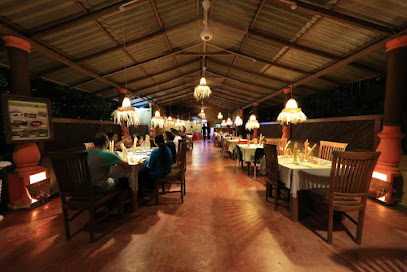
Manj Restaurant & Bar
Discover the vibrant tastes of Sri Lanka at Manj Restaurant & Bar, a culinary gem in Dambulla offering diverse flavors and a lively atmosphere.
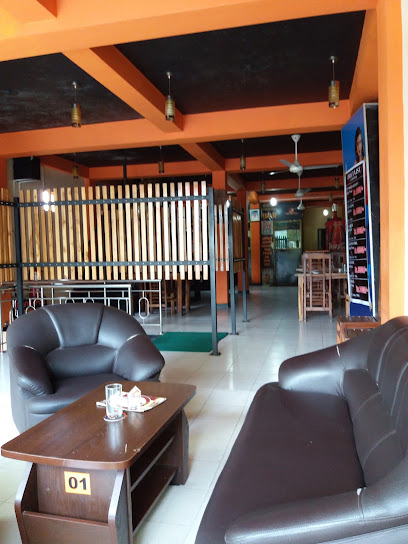
The Downtown Gastropub
Experience the vibrant flavors of Sri Lanka at The Downtown Gastropub in Sigiriya, where local and international cuisines unite in a stunning atmosphere.
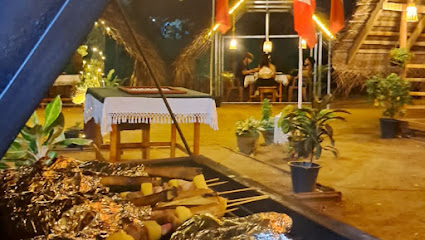
Machan Dambulla - මචං දඹුල්ල
Discover the vibrant nightlife at Machan Dambulla, a lively pub in Dambulla serving local flavors and a welcoming atmosphere for all.
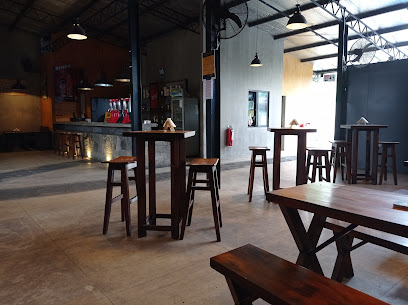
La Dolce Vita
Discover the flavors of Sri Lanka at La Dolce Vita, a charming bar and restaurant in Sigiriya, perfect for relaxation and culinary delights.
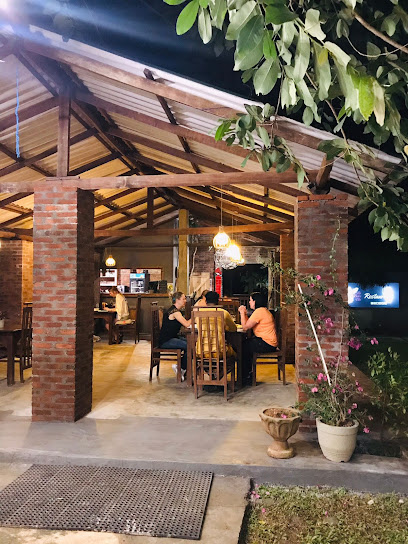
Heritage Dambulla By Ceylon Hotels Corporation
Experience the flavors of Sri Lanka at Heritage Dambulla, a cozy bar and restaurant perfect for breakfast, lunch, and snacks in a charming setting.
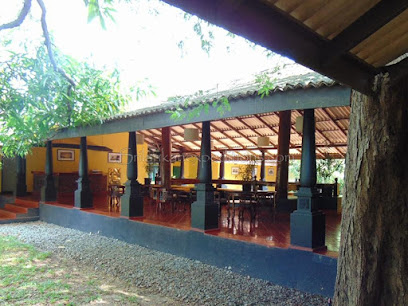
DUMBARA WINE(BAR)
Discover the essence of local wines at Dumbara Wine Bar in Dambulla, where culture meets relaxation in every sip.
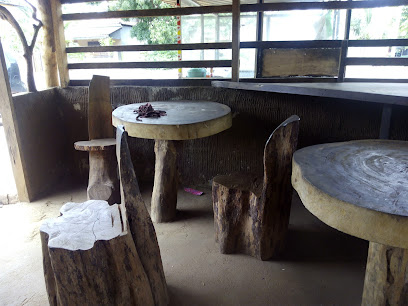
169 Restaurant
Immerse yourself in the lively ambiance of 169 Restaurant, Dambulla's premier bar for a refreshing drink and vibrant atmosphere.
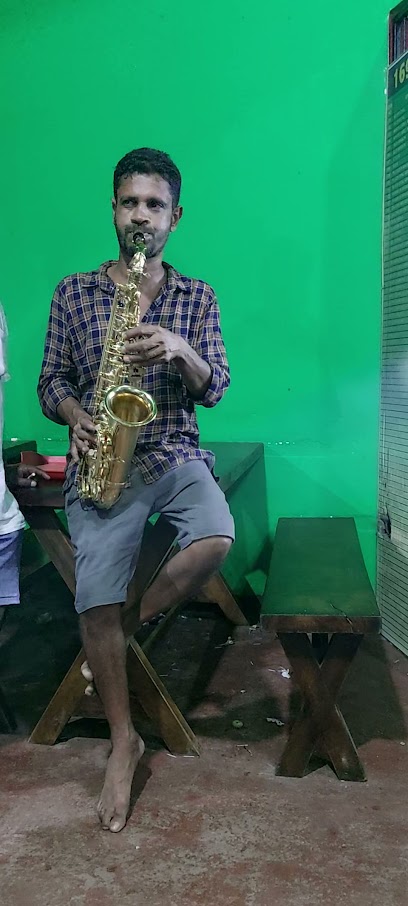
Arayuma restaurant and bar
Experience the vibrant atmosphere and diverse menu at Arayuma Restaurant and Bar in Dambulla, where local flavors meet international delights.
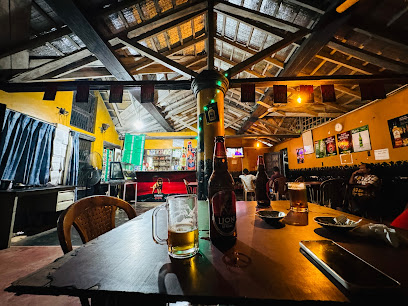
Laki's chill lounge
Discover tranquility and exquisite flavors at Laki's Chill Lounge, a must-visit restaurant in Dambulla for every traveler.
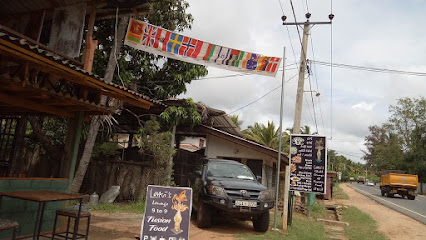
Kandy Liqour Restorunt
Experience the authentic taste of Sri Lanka at Kandy Liquor Restaurant, a cozy spot in Dambulla that delights with local dishes and warm hospitality.
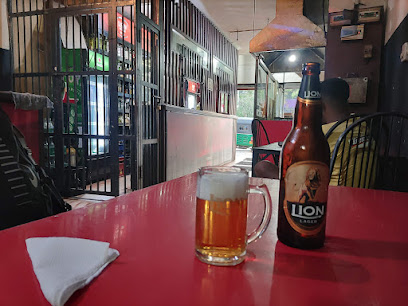
Greeno Restaurant & Juice Bar
Discover the vibrant flavors of Sri Lanka at Greeno Restaurant & Juice Bar in Dambulla, where fresh ingredients and welcoming service create a memorable dining experience.
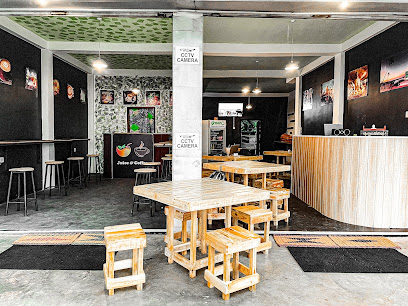
Pool Bar Al Forno
Discover Pool Bar Al Forno in Dambulla, a serene oasis for relaxation and delightful cocktails in a stunning poolside setting.
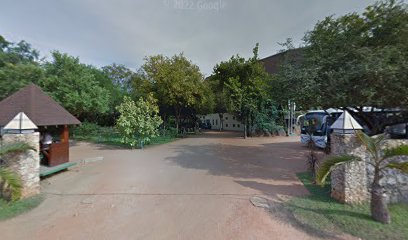
The Lion Kingdom Restaurant & Bar
Discover a culinary oasis in Dambulla at The Lion Kingdom Restaurant & Bar, serving exquisite local and international dishes in a warm, inviting atmosphere.
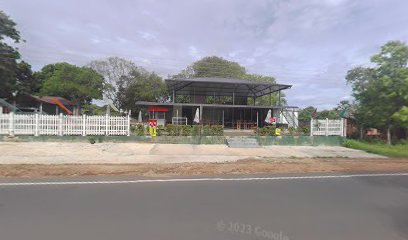
Kajanthan Kaji
Discover the lively atmosphere and refreshing drinks at Kajanthan Kaji, a must-visit bar in Dambulla, Sri Lanka.

Local Phrases about Dambulla
-
- Helloආයුබෝවන්
[Ayubowan] - Goodbyeවවන්නේ
[Wavanney] - Yesඔව්
[Owa] - Noනෑ
[Nae] - Please/You're welcomeකරන්න
[Karanna] - Thank youස්තූතියි
[Sthuthiyi] - Excuse me/Sorryසමාජවාදයෙන්/කිසිවෙක්
[Samajawadayen/Kisiweka] - How are you?ඔයා කෙස්ද
[Oya kesda] - Fine. And you?හොදයි. ඔයා?
[Hodayi. Oya?] - Do you speak English?ඉංග්රීසි කතාකරලාද
[Ingreesi kathakaralada] - I don't understandමම ඉතින් දැනගන්නේ
[Mama itin dannanne]
- Helloආයුබෝවන්
-
- I'd like to see the menu, pleaseමෙනූ දේශපාලනය බලන්න
[Menu deshapalanaya balanne] - I don't eat meatමම මස් නෑගත්තා
[Mama mas naigattha] - Cheers!සුභපාදයෙක්
[Subapadayeka] - I would like to pay, pleaseකරන්න ගණන් ගෙවන්න
[Karanna ganan gewanna]
- I'd like to see the menu, pleaseමෙනූ දේශපාලනය බලන්න
-
- Help!උක්කව
[Ukkwa] - Go away!ගමානයේ
[Gamanaeye] - Call the Police!පොලීස් අපෙන්න
[Police apennna] - Call a doctor!වෛර අපෙන්න
[Vaira apennna] - I'm lostමම අතූලි
[Mama atuli] - I'm illමම අසා
[Mama asa]
- Help!උක්කව
-
- I'd like to buy...මම ... මිලට ගෙවන්න එපා
[Mama ... milata gewanna epa] - I'm just lookingමම දර්ශකයා
[Mama darshakaya] - How much is it?එය අගන්නේ කොකා
[Eya aganne koka] - That's too expensiveඑය ඉතිරි කියලා
[Eya itiri kiyala] - Can you lower the price?දඩ අඩු කරන්නේ මොකක්
[Dada adu karanne mokak]
- I'd like to buy...මම ... මිලට ගෙවන්න එපා
-
- What time is it?දිනය කුලයෙක්
[Dinaya kulayeka] - It's one o'clockඑකක් කුලේ
[Ekak kulaye] - Half past (10)දාශ්යක පන් දහයේ
[Dashyaka pan dahayen] - Morningඋදේ
[Ude] - Afternoonපෙ.ව.
[Peva] - Eveningදෙර
[Dera] - Yesterdayඊළගට
[Elagata] - Todayඅද
[Ada] - Tomorrowහෙට
[Heta] - 1එක
[Eka] - 2දෙක
[Deka] - 3තුන
[Thuna] - 4හතලි
[Hathali] - 5පහ
[Paha] - 6හය
[Haya] - 7හත
[Hatha] - 8අට
[Ata] - 9නවය
[Navaya] - 10දහ
[Daha]
- What time is it?දිනය කුලයෙක්
-
- Where's a/the...?ඉක්මවූ ... කොකා?
[Ikmuwa ... koka?] - What's the address?ලිපිනය කුලක්?
[Lipinaya kulak?] - Can you show me (on the map)?මම දියලාද? (මාපේ)
[Mama diyala? (mape)] - When's the next (bus)?ඊළඟට කුලක්? (බස්)
[Elagat kulak? (bas)] - A ticket (to ....)පියතුරු ( ... වේ)
[Piyathuru (... we)]
- Where's a/the...?ඉක්මවූ ... කොකා?
History of Dambulla
-
Dambulla's history dates back to the 3rd century BCE. It was during this time that King Valagamba of Anuradhapura, driven out of his kingdom by South Indian invaders, sought refuge in the caves of Dambulla. These caves later became the famous Dambulla Cave Temple, a UNESCO World Heritage Site.
-
Also known as the Golden Temple, the Dambulla Cave Temple is a complex of five caves, adorned with impressive Buddha statues and elaborate frescoes. The temple's origins can be traced to the first century BCE when King Valagamba, after regaining his throne, had the interior of the caves transformed into a shrine to express his gratitude.
-
Dambulla stands as a testament to Sri Lanka's Buddhist heritage. Over the centuries, it has been a center of Buddhist worship and continues to be a pilgrimage site. The temple complex includes over 150 statues of Buddha, bodhisattvas, and various gods and goddesses, showcasing the deep spiritual and artistic traditions of the island.
-
In the 19th century, Dambulla caught the attention of European explorers and scholars. Their documentation and studies brought global awareness to the cultural and historical significance of the site. The efforts of these early explorers paved the way for future archaeological research and conservation.
-
Beyond its historical and religious significance, Dambulla is also known for its agricultural contributions. The region is famous for its vibrant wholesale produce market, one of the largest in Sri Lanka. This market plays a crucial role in the distribution of fresh vegetables and fruits across the country.
-
In recent decades, various initiatives have been undertaken to preserve and protect Dambulla's rich heritage. These efforts include the restoration of frescoes, statues, and the surrounding environment, ensuring that this historical treasure remains intact for future generations to explore and appreciate.
Dambulla Essentials
-
Dambulla is located in the Central Province of Sri Lanka. The nearest international airport is Bandaranaike International Airport in Colombo, approximately 130 kilometers away. From Colombo, you can take a taxi or a bus to Dambulla, which typically takes around 3 to 4 hours by road. Alternatively, you can take a train from Colombo Fort Station to Habarana and then a taxi or a bus to Dambulla, which offers a scenic route through Sri Lanka's countryside.
-
Dambulla is a small town, and many of its attractions are within walking distance. For longer trips, local tuk-tuks and taxis are readily available and relatively inexpensive. Public buses operate within the town and connect to nearby cities and attractions. Renting a car or a bicycle can also be a convenient option for exploring the surrounding areas at your own pace.
-
The official currency in Sri Lanka is the Sri Lankan Rupee (LKR). Credit cards are accepted in some hotels, restaurants, and shops, but it is advisable to carry cash, especially in smaller establishments and rural areas. ATMs are available in Dambulla, but it is wise to withdraw sufficient cash in larger cities before traveling to ensure you have enough funds.
-
Dambulla is generally a safe destination for tourists. However, like any travel destination, it is advisable to take standard precautions. Avoid walking alone at night in unfamiliar areas and keep an eye on your belongings in crowded places. While there are no specific high-crime areas targeting tourists, it is always best to stay vigilant and aware of your surroundings.
-
In case of emergency, dial 119 for immediate assistance. The local police station and medical facilities are available in Dambulla. It is recommended to have travel insurance that covers medical emergencies. For minor health issues, there are pharmacies in the town where you can purchase over-the-counter medications.
-
Fashion: Do dress modestly, especially when visiting religious sites. Avoid wearing revealing clothing. Religion: Do respect local customs and traditions. Always remove your shoes and cover your head when entering temples. Public Transport: Do be respectful and give up your seat to elderly passengers. Don't eat or drink on public transport. Greetings: Do greet people with a smile and a nod of the head. A slight bow is also a sign of respect. Eating & Drinking: Do try local delicacies and accept food offerings graciously. Don't refuse hospitality, as it is considered impolite.
-
To experience Dambulla like a local, visit the local markets where you can buy fresh produce and traditional Sri Lankan goods. Engage with locals, as they are often friendly and willing to share stories about the town's history and culture. Don't miss visiting the Dambulla Cave Temple, a UNESCO World Heritage Site. For a unique experience, take a hike to the top of Pidurangala Rock for breathtaking views of Sigiriya Rock and the surrounding landscape.
Trending Landmarks in Dambulla
-
Sigiriya
-
Dambulla Royal Cave Temple and Golden Temple
-
Pidurangala Rock
-
Uththararamaya (Gal Vihara)
-
Jetwing Lake
-
Minneriya National Park
-
Jathika Namal Uyana
-
Polonnaruwa Ancient City
-
Oak Ray Elephant Lake
-
Pelwehera Village Resort
-
Ibbankatuwa Megalithic Tombs
-
Ibbankatuwa Megalithic Burial Site
-
Popham's Arboretum
-
Rangiri Dambulla Resort
-
Dambulla Rock Arch
Nearby Cities to Dambulla
-
Things To Do in Polonnaruwa
-
Things To Do in Anuradhapura
-
Things To Do in Kandy
-
Things To Do in Trincomalee
-
Things To Do in Nuwara Eliya
-
Things To Do in Negombo
-
Things To Do in Ella
-
Things To Do in Colombo
-
Things To Do in Bentota
-
Things To Do in Hikkaduwa
-
Things To Do in Galle
-
Things To Do in Jaffna
-
Things To Do in Unawatuna
-
Things To Do in Matara
-
Things To Do in Mirissa








